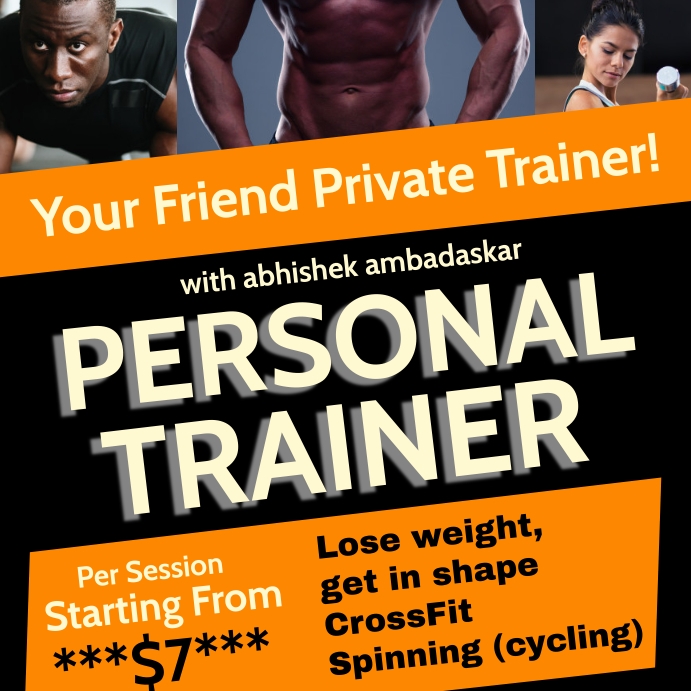
There are many different options when it comes to completing a certification program for personal trainers. Some programs are available online and others are only available in person. It is important to choose which one suits your needs best. Here are some examples. They can also differ in their cost and length.
ISSA CPT
The process of becoming a certified personal trainer isn't cheap. ISSA certification covers a variety of topics such anatomy, movement, and nutrition. It also covers the psychology of motivation and business and marketing skills. This is a demanding program that requires concentration.
Open-book ISSA exam preparation materials and dumps can be used. It is self-paced and you do not have to complete the course in a set time. You can start the course anytime during the enrollment process. You can start your studies on Monday, and complete it during the week.

CPT NESTA
The NESTA CPT cost of certification for a personal trainer varies. Some courses are just $49 while others include study materials, a practice exam, and other courses include both. It is worth studying for the certification exam carefully. The study materials from NESTA can all be used on your Android, iPad, and computer.
The exam will set you back $349. However, it is possible to save substantial money by taking your certification online. Most certification bodies offer online courses, which cost as little as $500.
NCSF
This certification for personal trainers by the NCSF is a great way of getting started in the industry. It is inexpensive and focuses only on the basics of personal training. The bonus is that it provides access to numerous resources and online resources including instructor support and lesson notes, review quizzes and instructional videos. A self-study kit can be purchased, or you may choose to attend an instructor-led workshop. This 2-day training is intensive. The NCSF also offers exam preparation clinics.
NCSF's Nutrition Certification is unique because it offers practical insights that you can apply right away. Most nutrition certifications are not able to connect scientific knowledge with practical training insights. NCSF's nutrition section has over 50 pages and contains practical information you can put to use on the job.

NASM
Earning your NASM certification can help you start a career in the fitness industry as a personal coach. This certification is considered the gold standard in North American personal training. The certification offers many benefits. This certification allows you to collaborate with a worldwide audience. It also equips you with the necessary industry knowledge.
But, it is important to consider the cost. NASM certification can be purchased for $399. However, recertification fees must be paid every two-years. CECs can be earned by taking classes in college courses that relate to personal training. A college transcript must be submitted to verify that you have the appropriate education.
FAQ
Can I eat when I'm working out?
Yes. While you're working out, you can eat whatever you'd like. Watermelon, grapes (or carrots or celery), watermelon, grapes, apples, bananas or apples are all low-calorie snacks. These foods are rich in nutrients that will help you work out better.
How does caffeine affect my sleeping?
Caffeine has a significant impact on how fast you fall asleep and how deep you sleep. Caffeine induces drowsiness which makes it easier to fall asleep. Caffeine keeps you awake for longer periods of time, making it difficult to fall asleep again. Instead of drinking coffee or energy drinks just before bed, you might consider having them in the evening.
What happens if I don't get enough sleep?
Your brain won't receive enough sleep if it doesn't get the signals it needs to regulate hormones, chemicals that regulate appetite and metabolism. This can lead to weight gain and excess eating. Sleep deprivation can also lead to excessive weight gain.
How many hours of sleep should I get every night?
The recommended sleep amount varies based on age, gender, individual needs, and other factors. Adults require 7 to 9 hours sleep per night. Teenagers and children typically need about 10 hours of sleep per night, but this number decreases as they grow older.
Statistics
- In 2018, the World Health Assembly agreed on a global target to reduce physical inactivity by 15% by 2030 and align with the Sustainable Development Goals. (who.int)
- An estimated 110,000 deaths per year could be prevented (cdc.gov)
- Adolescent girls were less active than adolescent boys, with 85% vs. 78% not meeting WHO recommendations of at least 60 minutes of moderate to vigorous intensity physical activity per day. (who.int)
- Physical activity confers the following maternal and fetal health benefits: a decreased risk of pre-eclampsia, gestational hypertension, gestational diabetes (for example, 30% reduction in risk) (who.int)
External Links
How To
How To Stay Fit During Pregnancy
When you're pregnant, your body undergoes many changes. Your metabolism slows down, and you eat less because you're growing a baby inside you. You may feel sick if your sleep is not enough. There are many ways to keep your health in check while still enjoying this wonderful time of your life.
First things first, you should check with your doctor before starting any exercise routine. You can have them tell you which exercises to avoid and which ones you can safely do. Second, make sure you eat well throughout your pregnancy. This includes eating plenty protein, fiber, iron. Third, you should drink lots of fluids. You lose a lot of fluids through sweating, so it is especially important to drink water during exercise. Also, care for your feet. You should always keep your feet dry, and wear shoes that provide support. Make sure to eat small meals, such as toast or crackers, if you have morning sickness. You might end up feeling nauseated.
-
Take care of your health. A healthy diet is vital throughout pregnancy.
-
Get active. Daily exercise of at least 30 mins
-
Maintain a Healthy Weight By eating smaller meals and snacks, you can lose weight.
-
Get Enough Sleep. Try to get 7-9 hours of sleep each night.
-
Manage Stress. Learn relaxation techniques.
-
Avoid Alcohol. It may cause miscarriage and birth defects.
-
Be gentle with yourself. Be gentle with yourself.
-
Take Care of Yourself. You can have someone look in on you if necessary.
-
Relax. Do what makes you happy.